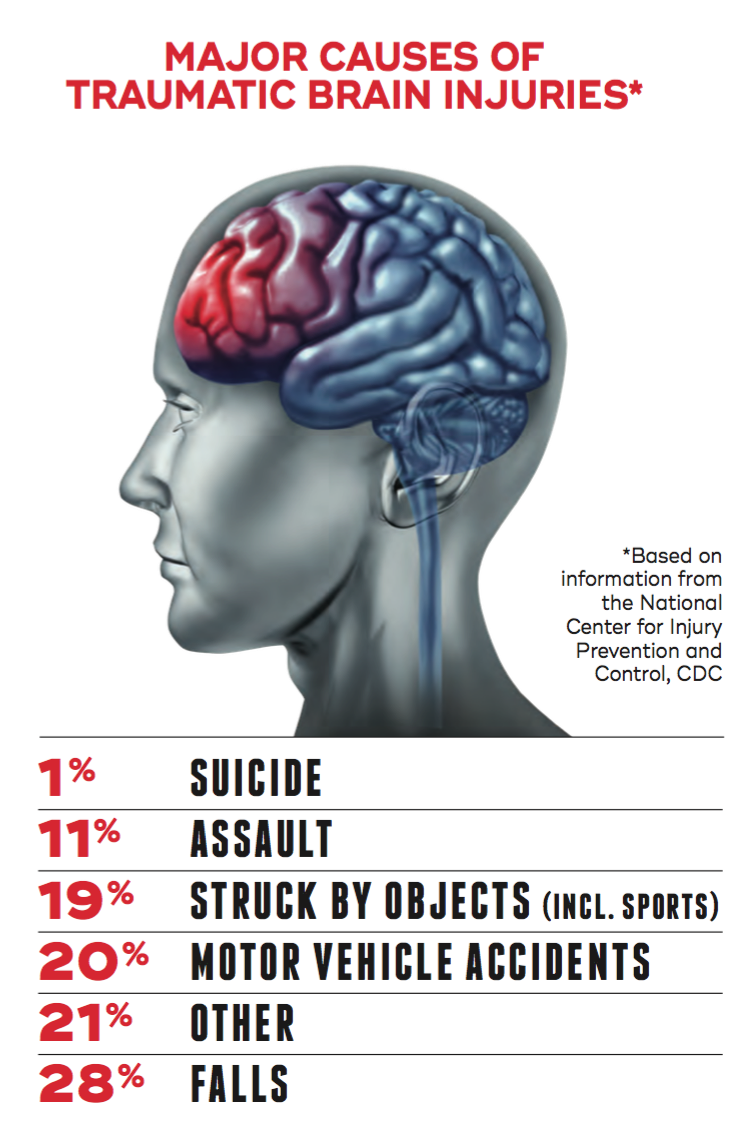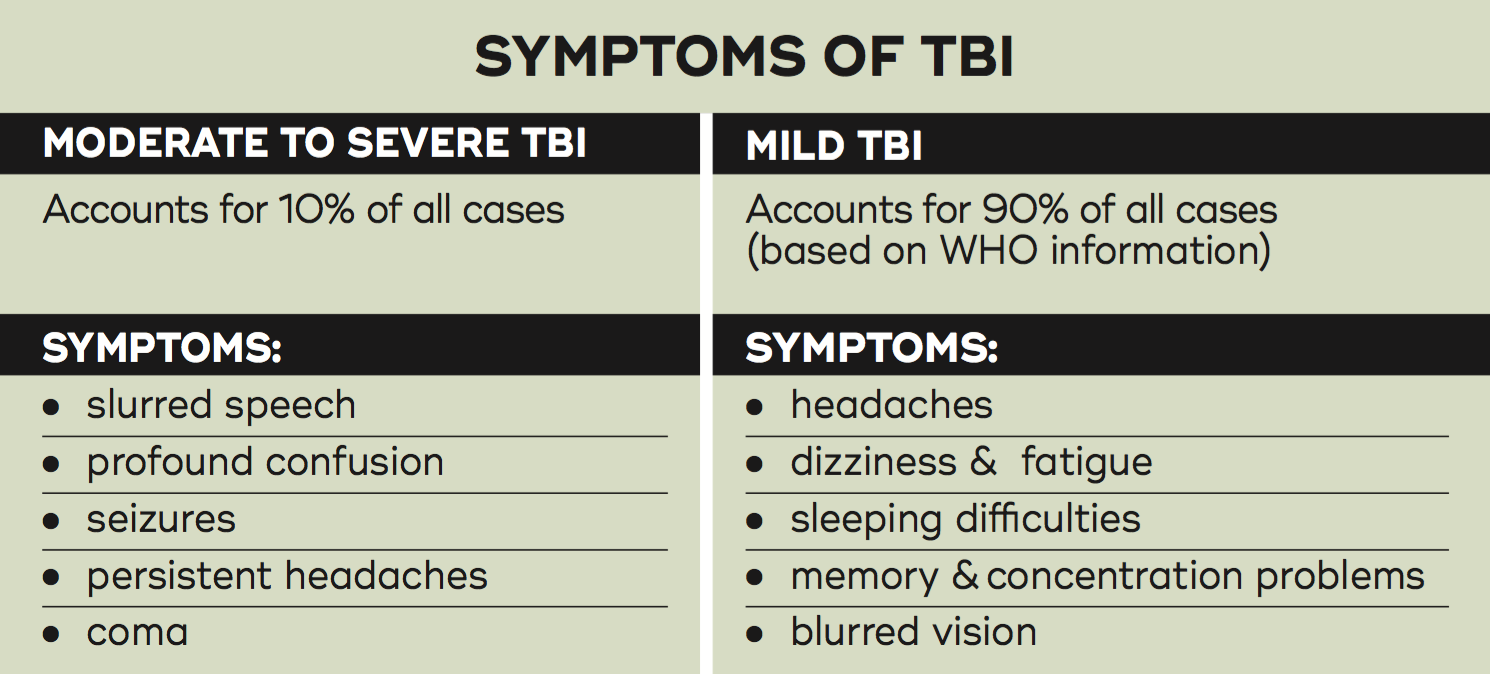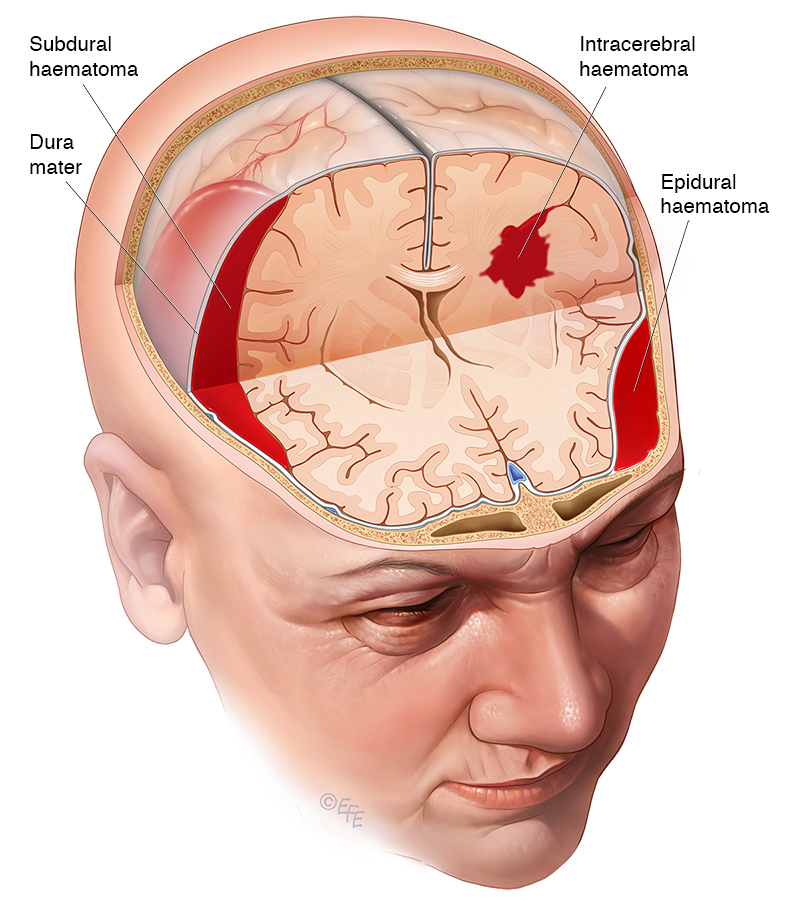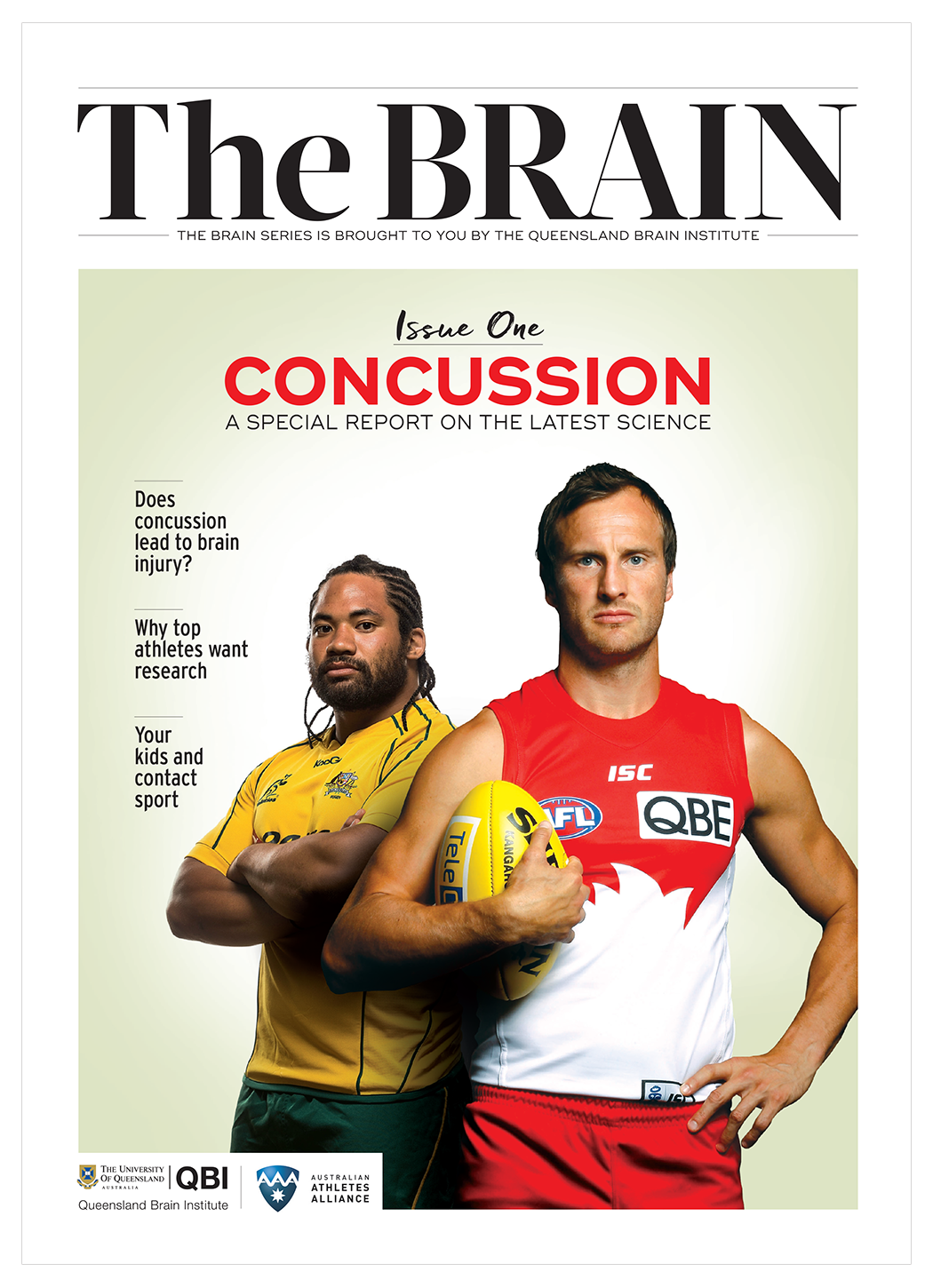What is traumatic brain injury?
Traumatic brain injury (TBI) is an injury to the brain caused by an external force. Common causes include falls, car accidents, assault or being struck by objects such as might occur during sport. TBI is classified according to its severity: mild, moderate or severe. From a medical perspective this judgment is based on what’s known as the Glasgow Coma Scale (GCS), which assesses motor, verbal and eye-opening responses. The scale runs from 3 to 15, where 3 is assigned to someone who is dead or comatose and 15 is normal. Someone with a mild TBI generally has a GCS of 13–15.
In the absence of clinical assessment, TBI is considered moderate-to-severe if there is a loss of consciousness that is longer than 30 minutes and amnesia – memory loss – lasts for more than 24 hours. It’s mild if those conditions are not met. Concussion is classified as a mild TBI (mTBI).

Signs and symptoms of traumatic brain injury (TBI)
Common symptoms of mild TBI are headaches, dizziness and fatigue, sleep disturbances, memory or concentration problems, and blurred vision. But a person may not display all of these at all times.
For severe TBI, symptoms can include slurred speech, profound confusion, seizures, persistant headaches, or loss of consciousness.


Prominent TBIs
The tragic outcomes of a spate of one-punch attacks – so-called ‘coward punches’ – in recent years has drawn considerable attention and resulted in harsher sentencing laws for perpetrators. Many researchers in the TBI field argue the tough laws are justified because even when a single punch isn’t lethal, or doesn’t have any apparent immediate effects, the head trauma can lead to irreversible consequences years or decades later.
Recent highly publicised cases of severe TBI have included Formula One driver Jules Bianchi, who died as the result of head injuries received when the car he was driving crashed during the 2015 Japanese Grand Prix. Retired Formula One driver Michael Schumacher continues to receive intensive treatment for severe head injuries that he suffered during a skiing accident in France, in 2013. In both of these cases, a severe TBI resulted in an immediate and prolonged loss of consciousness.
However, a loss of consciousness isn’t always necessary for the consequences of TBI to be catastrophic. In 2009, British actress Natasha Richardson knocked her head while skiing. Thinking she was fine, she declined medical care on multiple occasions before later experiencing headaches that prompted her to go to hospital. Richardson subsequently died due to an epidural haematoma, a build-up of blood between the skull and the membrane that surrounds the brain. Haematomas are considered secondary injuries, meaning that the damage done to the brain doesn’t coincide directly with the blow to the head.
Image by Levent Efe
Discover the Queensland Brain Injury Collaborative (QBIC, “Cubic”), a research-led initiative that aims to improve care across the trajectory of acquired brain injury.


